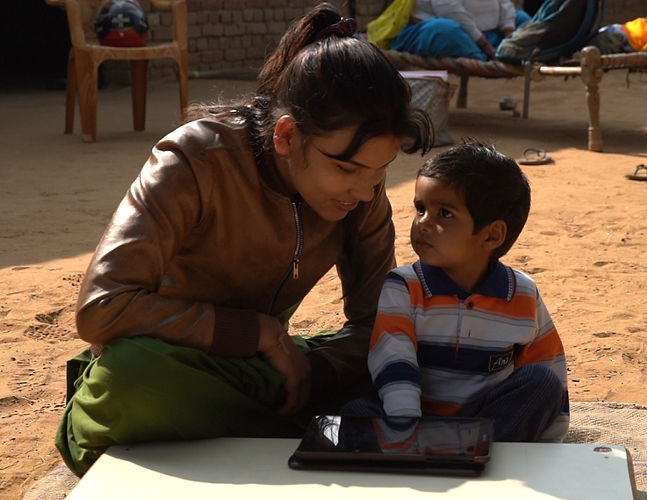Enabling children to reach full potential
DEEP is designed for use by front-line workers in everyday settings. It is designed to be a child-friendly digital assessment tool which directly measures a child’s cognitive capabilities through their interaction with a validated game.
DEEP is administered offline, on low-cost android devices, in the comfort of a child’s home.
Our ambition is to equip front-line workers, and even parents themselves, with digital tools that enable a dramatic scale-up of routine cognitive developmental assessments in young children—an approach similar to growth monitoring. This would enable early identification of children who are faltering in their cognitive development, and need interventions.

what the games capture
The games in DEEP assess a variety of cognitive domains, such as attention, reasoning, visual perception and integration, and memory.
All fourteen games are listed on the x-axis. Together, these games cover nine cognitive domains, which are listed on the y-axis.

The darker red shows maximum representation of a cognitive domain in that game. We hypothesise that most games cover multiple cognitive domains and most cognitive domains are represented across multiple games.
what makes deep unique
low-cost architecture
Designed to work on tablets, to make it low-cost and portable for frontline workers.
community-centric
Designed to work in community and home settings—to maximize the the child's comfort.
open source
Application is available to researchers on request.
instruction-free
No written instructions; the game follows a visual storyline.
offline-first
Designed to work offline, to cater to locations with limited internet connectivity.
objective by design
Free of assessor judgment—data is recorded by a digital device and scored using a validated system.
modular
Each game operates independent of the others.
design & development process
Expert consultations, literature review
Clinicians, Neuroscientists, Public health experts, Computer scientists, Game developers.
Tool prototyping
Iterative tool development process
Formative work
Child performance, Feedback from parents and non-specialist staff
Tool developed
Offline-first design, assessment data stored locally on the tablet.
Acceptability, feasibility, validity
Administered by non-specialist staff in the child’s home
Use in diverse population
In use in six locations in India, Malawi, Nepal.